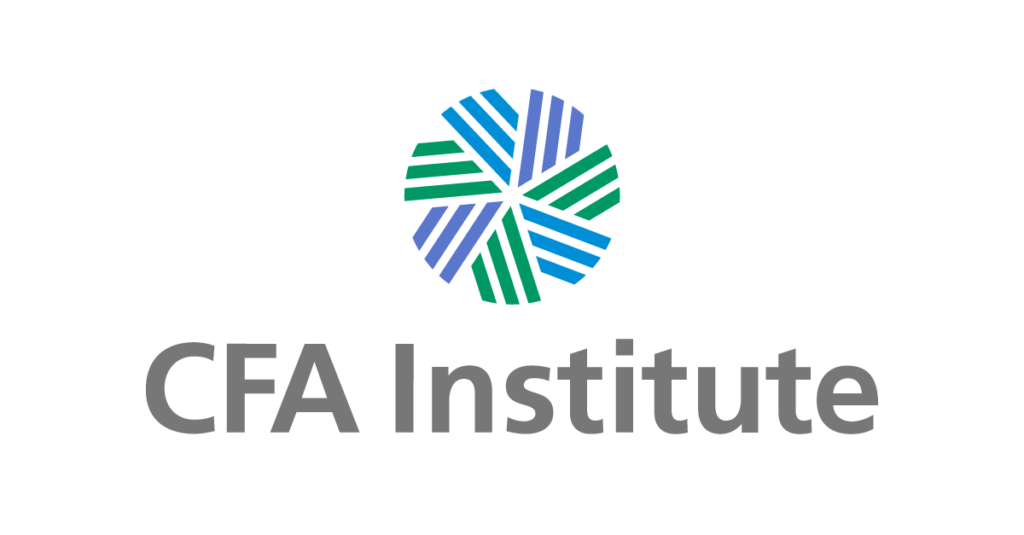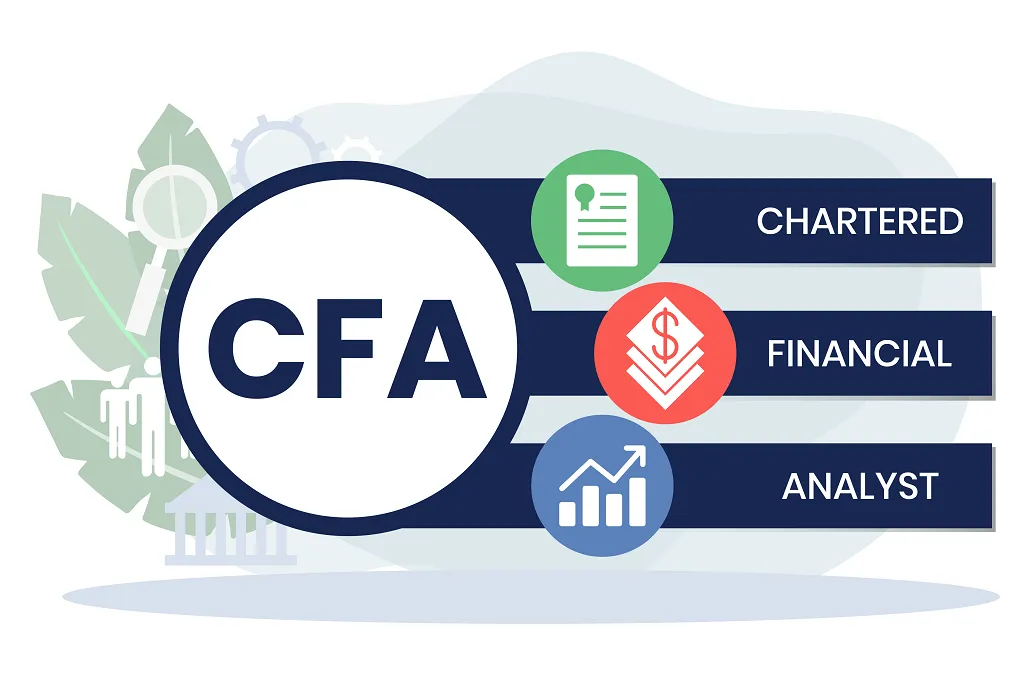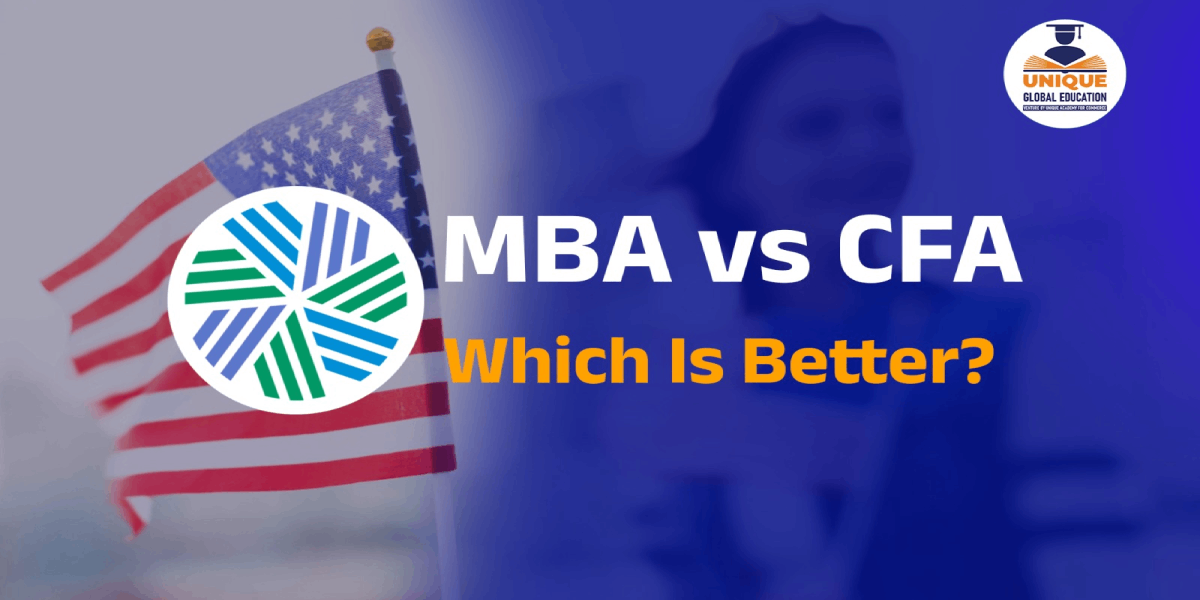If you are thinking about a career in Finance, Investment Banking, Asset Management, or even Corporate Strategy—two of the most common post-graduate qualifications you would likely consider are the Master of Business Administration (MBA) and Chartered Financial Analyst (CFA) certification.
Both offer great career opportunities, but they are for different goals. An MBA can benefit those in managerial roles, while a CFA is focused on investment knowledge.
In this article, we will compare MBA vs CFA across various parameters including scope, career prospect, cost, difficulty, salary expectation, and return on investment (ROI).
Table of Contents
1. Understanding MBA and CFA
What is an MBA?

MBA stands for Master of Business Administration, and is a graduate degree that studies the fields of business management, leadership, finance, marketing, operations, etc. It is also one of the most recognized qualifications common to industries outside of finance.
They can be full-time, part-time, executive or online, and generally take one to two years to complete. The most popular and best business schools in MBA programs are Harvard, Wharton, INSEAD, London Business School, IIMs (India).
What is CFA?
The CFA (Chartered Financial Analyst) program is a globally recognized professional certification that the CFA Institute offers. It covers investment management, financial analysis, portfolio management, and ethics.
The CFA program has three levels and can take typically, 2-4 years to complete. Candidates must pass all three levels and be able to demonstrate a minimum of four years of pertinent work experience to achieve the CFA charter.
2. Key Differences Between MBA and CFA
| Feature | MBA | CFA |
| Duration | 1-2 years | 2-4 years |
| Cost | $50,000 – $200,000 (₹10-50 lakh) | $2,500 – $10,000 (₹2-8 lakh) |
| Focus | Business management, leadership, marketing, strategy, finance | Investment analysis, portfolio management, financial modeling |
| Flexibility | Full-time, part-time, executive, online | Self-paced study |
| Recognition | High, especially from top B-schools | High, but primarily in investment and finance |
| Career Scope | Banking, consulting, entrepreneurship, finance, marketing | Investment banking, asset management, equity research |
| Difficulty Level | Moderate to high (depends on B-school) | Very high (less than 50% pass rate per level) |
| Return on Investment | High, especially from top B-schools | High, but mainly in investment roles |
3. Career Opportunities: MBA vs CFA
MBA Career Paths

An MBA readies professionals for a variety of careers spanning industries. Here are some of the best careers:
- IFM (Goldman Sachs, JP Morgan, Morgan Stanley)
- Management Consulting (McKinsey & Co. / BCG / Bain)
- Corporate Finance (Large corporates like Google, Amazon, Microsoft)
- Private Equity & Venture Capitals
- Entrepreneurship & Startups
- Marketing & Strategy Roles
Candidates with an MBA would be trained in managerial and leadership skills, making them the ideal candidates for mid-to-senior-level positions across multinational corporates.
CFA Career Paths

The CFA designation is highly specialized in finance, particularly in investment management. Common career paths for CFA charterholders include:
- Equity Research Analyst
- Portfolio Manager
- Investment Banking Analyst
- Risk Manager
- Financial Consultant
- Hedge Fund Manager
The CFA is the gold standard for professionals looking to specialize in investment analysis, portfolio management, and asset management. However, it does not provide the same level of managerial training as an MBA.
Get More Details CFA Online and Face To Face Classes
4. Cost Comparison: MBA vs CFA
One of the major factors of difference between MBA and CFA is their expenditure.
- MBA Cost: Top MBA programs cost ₹10-50 lakh ($50,000 to $200,000) depending on the country and institution.
- CFA Fees: The total CFA exam fees are anywhere between $2,500 to $10,000 (₹2-8 lakh) for all the three levels, which makes it a much more affordable alternative for an MBA degree.
If one is looking for a cost-effective qualification to pursue in their professional life CFA is the better source. But if networking, leadership, and career transitions are top of mind, an MBA is worth the investment.
5. Difficulty Level: MBA vs CFA

- How difficult is an MBA? The difficulty of a respective MBA program very much depends on the particular business school and its curriculum. Though B-school admission is fiercely competitive, there is a good chance that you will be able to cope with academic workloads in most colleges.
- CFA Exam Difficulty — The CFA exam is one of the most difficult professional qualifications to attain, with less than 50% passing each level on average. That requires true analytical skills and commitment.
If you have a liking for self-studying and finance concepts, CFA might be the best career alternative for you. But if you want a more structured environment for learning and networking, then an MBA is a better option.
6. Salary Expectations: MBA vs CFA
| Job Role | CFA Salary (INR per annum) | MBA Salary (INR per annum) |
| Investment Banker | ₹10-50 lakh | ₹20-80 lakh |
| Portfolio Manager | ₹8-50 lakh | ₹15-60 lakh |
| Equity Research Analyst | ₹6-40 lakh | ₹10-50 lakh |
| Risk Manager | ₹8-40 lakh | ₹12-45 lakh |
| Financial Consultant | ₹5-30 lakh | ₹8-40 lakh |
Senior finance roles: MBA graduates from top-tier (Harvard, IIM, Wharton, and more) schools earn ₹30-80 lakh per annum
The average salary of CFA charterholders is ₹10-50 lakh per annum, but with experience, the salary influx is huge.
Verdict: For if an immediate salary boost is all a candidate wants, it’s a top-tier MBA. But it is CFA that is more affordable for those who are looking for niche finance roles.
7. Return on Investment (ROI): MBA vs CFA
- MBA from Top B-Schools: Better salary growth, flexible careers, employer recognition, long term investment
- CFA: The cost of CFA is cheaper, and therefore, it has a better value-to-cost ratio, which is perfect for finance professionals who are willing to pursue specialized investment roles.
- Top-tier MBAs pay off faster if you can afford them. CFA is more cost-effective for finance-specific careers.
8. Which One Should You Choose?

Choose MBA If:
- You are interested in different industries: consulting vs banking vs entrepreneurship.
- Your goal is a leadership role in finance or corporate strategy.
- You desire more opportunities to network.
- You are prepared to do expensive high-return education
Choose CFA If:
- You want a finance-focused career in investment management.
- You prefer self-paced learning instead of classroom-based education.
- You are looking for a cost-effective qualification.
- You want to specialize in investment banking, equity research, or portfolio management.
Final Verdict: MBA vs CFA
- MBA/Miscellaneous are more flexible, nurturing other areas such as networks and leadership that are more valuable to roles.
- CFA is better for a finance-specific career with a lower cost.
- To gain maximum benefits in terms of career some do both MBA + CFA.
- At the end of the day, the “better” choice comes down to your career goals, budget, and preferred industry. So, make the best choice you can and Plow into success!
Get More Details CFA Online and Face To Face Classes















